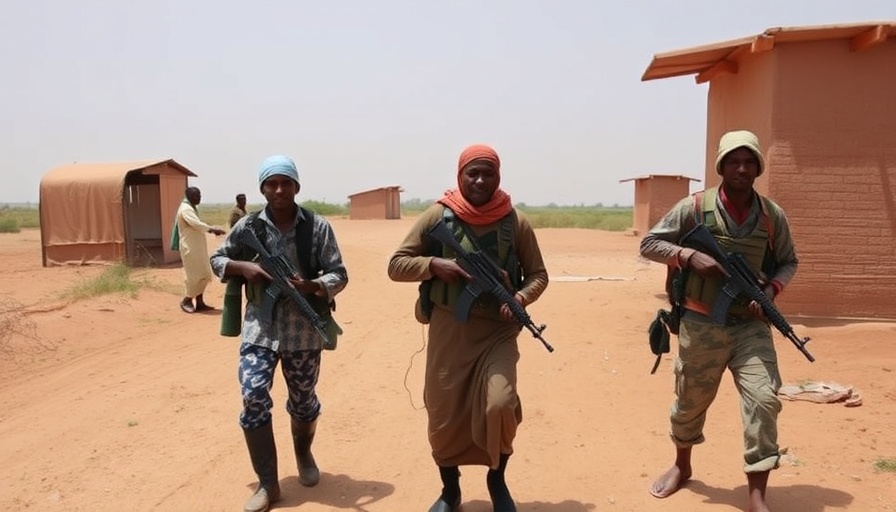
Understanding the Impact of Terrorism in Africa
The ongoing war against violent extremism across Africa, especially in the Sahel region and Somalia, highlights a hidden crisis that is reshaping political and economic landscapes. With recent reports indicating a rise in affected nations from 58 to 66, it's evident that terrorism remains a formidable adversary not only to stability but also to economic growth and foreign investment.
The Grim Statistics
The latest Global Terrorism Index reveals that countries like Burkina Faso, Mali, and Niger are among those on the frontline of this deadly battle. A staggering 1,805 deaths were attributed to ISIS and its affiliates in a single year, sending shockwaves across the global economic fabric. In Somalia, although al-Shabaab-related incidents decreased by 19%, the group still accounted for an alarming 96% of terrorist attacks, emphasizing the difficulty in achieving long-term stability.
International Responses and Their Effectiveness
Efforts to counter these extremist threats have included coordinated military operations led by local governments and international support, notably from the African Union and US forces. Despite some success in reclaiming territories, as seen in Somalia, the resilience of groups like al-Shabaab indicates a deep-seated challenge. The current situation underscores a pivotal question for policymakers: how can we effectively combat these groups without exacerbating national grievances or increasing recruitment efforts among local populations?
Uneven Progress Across the Region
While some countries have demonstrated improvements, many others continue to struggle with internal conflicts that complicate the fight against terrorism. The expulsion of French military forces from Sahelian countries, coupled with accusations of complicity in local conflicts, highlights a complex interweaving of geopolitics and local realities. The motivations of these nations to act independently against terrorist threats may ultimately lead to a more complicated security situation.
Beyond Borders: The Global Economic Consequences
The implications of terrorism extend beyond immediate casualties – they disrupt trade routes and deter foreign investment in affected areas. Policymakers, academics, and business leaders must grapple with the challenge of improving Africa’s economic standing even as violent extremism threatens progress. The interconnectedness of global markets means that instability in the Sahel and Somalia could ripple across continents, affecting economies worldwide.
What’s Next for Africa?
It is critical for stakeholders, including investors and policymakers, to prioritize creating frameworks that not only address security but also foster economic resilience. Initiatives that involve local communities effectively could transform the narrative around terrorism and rebuild trust among affected populations. Engage in conversations or research that address these changes, paving the way for a more stable future in the region.
 Add Row
Add Row  Add
Add 


 Add Row
Add Row  Add
Add 

Write A Comment